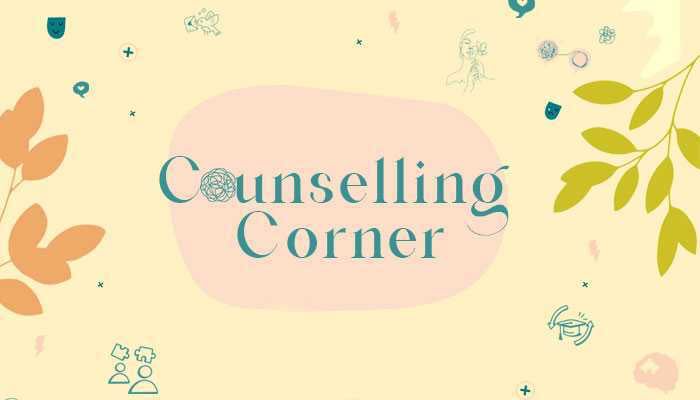'My mother can be toxic and discouraging. How do I maintain a healthy relationship with her?'
"I'm not saying that I'm perfect, but the way my mother talks to me sometimes really breaks my heart," says a disappointed daughter
May 28, 2025
Dear Haya,
I needed some practical advice regarding my relationship with my mother. My mother can be very toxic sometimes, discouraging and comparing me with other girls in the family and in family-friend circles. She often tends to dump all her frustrations on to me, even those that have to do with others.
I have tried being understanding towards her behaviour given her past of being raised under strict parents, but it doesn't warrant that I get the same treatment from her. I'm not saying that I'm perfect, but the way my mother talks to me sometimes really breaks my heart, but then I counter that by talking back to her and I despise doing that.
For context, she wants me married and I clearly don't feel prepared enough for that kind of commitment. I am focused on my career and doing something meaningful in life. I believe she resents me for not surrendering to this societal expectation. Please help me navigate this challenging situation. I don't want to be considered a bad daughter.
— A disappointed daughter

Dear disappointed daughter,
Thank you for sharing such a heart felt query. It takes a lot of courage in opening up about something as complex and emotionally layered as a mother-daughter relationship. I see how much your mother's behaviour is hurting you and how much you don’t want to disappoint her and have tried to be understanding and empathetic towards her but find yourself behaving in a way which makes you despise yourself. It’s clear that you’re navigating this with thoughtfulness, sensitivity, and a deep desire to preserve the bond while also protecting your own well-being.
Now, lets take a closer look to see what we can do:
Her behaviour is not about you
First things first, I want you to know that your mother’s behaviour has nothing to do with you. People’s behaviour is how they feel about themselves. Often times, we project onto others what is unhealed within ourselves. You mentioned she’s been raised under strict parents, and you find her doing the same thing with you; thus, there is a possibility that she is projecting her unhealed experiences on to you and repeating the cycle and while it’s great to see your level of empathy and understanding towards her that doesn’t have to account for you being treated in a bad way.
Redefine what it means to be a 'good daughter'
I hear your concerns about not wanting to be a bad daughter. But what does being a "bad daughter" really mean to you? What does obedience mean for you? What does it mean to have your own wants and needs? Are the choices you're making rooted in love — or in fear and conditioning?
These are themes I’d really encourage you to explore and redefine. Because many of us grow up shaped by layers of inherited beliefs —handed down by family, culture, and society. Over time, we lose touch with our own voice, and start living according to what’s expected, rather than what’s true to us. These are important questions to reflect on.
You can hold love and difference at the same time
It sounds like your mother is deeply concerned about you (even though the way she expresses it isn’t always helpful or kind). From what you’ve shared, her desire to see you married seems to come from a place of worry or fear — but it’s also clear that you know marriage is a major life decision and commitment and you seem self-aware enough to know this isn’t the right time for you. I also see that when your desires don’t align with hers — and neither side feels truly seen or heard — resentment naturally begins to build on both ends.
The question then becomes: how do you honour what you want, while still maintaining a meaningful relationship with your mother?
Focus on what you can control
An important thing to remember is that you cannot control or change anyone. You only have control over yourself. Your actions, your choices, your words, your behaviour etc. Once you accept that and start focusing on the things which are directly within your control things become easier.
Set boundaries with kindness and clarity
I see your empathy as a beautiful quality — and it clearly reflects your emotional maturity and desire to understand where your mother is coming from. But here’s the thing: empathy without boundaries often leads to emotional exhaustion or even self-abandonment. And from what you’ve shared, it seems like your empathy is currently coming at the cost of your emotional safety and peace of mind. So, how can you begin to protect your emotional space while still being compassionate?
The answer lies in setting healthy, respectful boundaries.
Boundaries are the internal lines we draw to define what we are willing to accept in our relationships — and what we are not. They’re not walls that shut others out, but rather guidelines that protect our mental and emotional well-being. When practiced kindly and consistently, boundaries actually preserve relationships in the long run by reducing resentment and emotional burnout.
For example, in your situation — if your mother begins to compare you to other women in the family or social circle — instead of absorbing the hurt or reacting defensively, try responding calmly with something like “I know you mean well, but it really hurts when I’m compared to others. I’d appreciate if we could talk about something else.” This is gentle but direct. It communicates that the behaviour isn’t okay — without attacking her as a person.
If it continues, shift the conversation with calm assertiveness:
"I don’t want to talk about this."
Then gently change the topic. And if it still persists, you have every right to excuse yourself from the room. Over time, you’ll be teaching her — through consistency and respect — how you expect to be treated.
You can also express a boundary around the topic of marriage by saying something like:
“I’m not ready for marriage right now, and it’s not something I want to discuss at this point. I’m focused on my career, and when I feel ready, I’ll let you know. Until then, I’d appreciate it if we didn’t bring this up again.”
You’re not closing the door forever. You’re simply choosing when and how the door opens. That’s a powerful form of agency.
These boundaries are not ultimatums — they’re tools to protect both your well-being and your relationship with her. Remember, the key with boundaries is consistency. It may take time for her to adjust, and there may be resistance at first — but over time, you’ll be modelling a new kind of relationship: one where both people can be themselves, feel safe, and feel respected.
You can love her — and still live your truth
Remember, it’s okay to choose a life path that differs from your mother’s expectations. You don’t have to abandon your relationship to live your own life. You can love your mother deeply and live your truth while setting limits and choosing a path that reflects your own values and timing. That’s called differentiation — and it’s a crucial part of growing into your own person.
Take care of yourself
Last but not least, I’d encourage you to lean into self-soothing practices like journaling, meditation, or simply creating quiet moments for yourself. These can really help ground you emotionally.
Start with these small steps and see how you feel. If, along the way, you find yourself needing deeper support, reaching out to a therapist or coach can be incredibly helpful in navigating these patterns and emotions with more clarity.
Good luck and best wishes.
— Haya

Haya Malik is a psychotherapist, Neuro-Linguistic Programming (NLP) practitioner, corporate well-being strategist and trainer with expertise in creating organisational cultures focused on well-being and raising awareness around mental health.
Send her your questions to [email protected]
Note: The advice and opinions above are those of the author and specific to the query. We strongly recommend our readers consult relevant experts or professionals for personalised advice and solutions. The author and Geo.tv do not assume any responsibility for the consequences of actions taken based on the information provided herein. All published pieces are subject to editing to enhance grammar and clarity.













